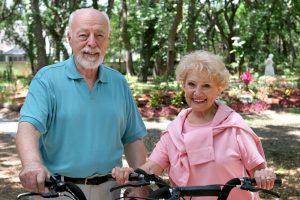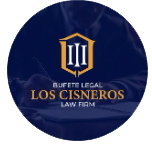we will do it together
INTELLECTUAL PROPERTY LAW
The Lawfirm specializes in intellectual property matters in Managua, Nicaragua, and we assist in all procedures related to patents, trademark registrations, trade names, and copyrights, among which we have:
- Registration and trademark certification
- Brand renewal
- Brand transfer
- Registration of Copyright
- Registration of use license
- Registration and accreditation of invention patents and new technologies
- Annuity payment of invention patents and new technologies
- Renewal of industrial design registry of invention patents and new technologies
- Renewal of industrial design registration.

Please place the questions below the services offered.
Is there a deadline for trademark registration approval?
A. The average time for registration approval is 14 months if there are no objections or oppositions.
If I register my trademark in Nicaragua, am I protected in other territories?
A. No. Protection for registered trademarks is limited to Nicaragua and does not extend to other countries.
Is it necessary to sign a power of attorney?
A. Yes. Applicants must submit a Power of Attorney.
What are the phases of the application after filing the trademark in Nicaragua?
A. The phases of the application are three: examination, publication, and registration. All applications are examined according to certain requirements. It will be verified that the trademark is not identical or similar to already registered trademarks. The trademark and its detailed data will undergo a publication process to allow third parties to oppose. If opposition is overcome by the trademark holder, registration is granted.
Is there any possibility to claim priority rights in Nicaragua?
A. Yes. Applicants can claim priority if:
- The Paris Convention applies in their country.
- The local application is at least 6 months prior to the application date here.
- The applicant’s country of origin is a member of the World Trade Organization.
What do I need to do to comply with the use requirement?
A. Registered trademarks must be used within 3 years of their registration date. They must be used for commercial purposes and in this jurisdiction.
Once I have registered my trademark, how long will it be valid?
A. The initial duration of a registration is 10 years from the registration date.
Does having a registered trademark in Nicaragua grant me any rights?
A. Trademark registration is mandatory to grant ownership rights. The ‘first to file’ rule applies in the specific case.
Is it necessary to use my trademark before applying for registration?
A. Applicants are not obliged to use the trademark or intend to use it before registration.
Who can challenge the registration of my trademark?
A. Any interested party can challenge a trademark registration.
Is it possible to cancel the registration?
A. The following can be grounds for cancellation: exclusive rights to a notable or recognized trademark; trade names; violation of copyright; rights associated with a personal name; rights associated with registered designs; the trademark is a geographical indication.
Are there established rights by having a registered trademark?
A. By registering the trademark, the following rights are granted to the holder: exclusive right to use the registered trademark; right to license third parties to use the trademark; right to oppose subsequent conflicting applications; right to request cancellation of subsequent conflicting registrations; right to file an infringement complaint against third parties using confusingly similar marks; right to receive compensation for damages caused by infringement; right to request seizure by customs authorities of imported counterfeit goods.
What is the opposition period?
A. The opposition period begins on the day the legal notice is published in the Official Gazette.
What are classes? Do I have to specify the products or services of my trademark?
A. Trademark Offices around the world use classes to divide all products and services into defined categories. When applying for trademark protection, you must define the class or classes that best describe your business activity. There are 45 classes – 34 for products and 11 for services – standardized for international use according to the Nice Classification. These classes group all known products and services. You can register the same trademark in different classes; for example, you can register the trademark KING for computers in class 23, and you can also register it in class 24 for cosmetics.
Trademark protection only applies to commercial use within your specified classes. It is possible then, for two entities conducting business in different classes to use identical or similar marks, and each enjoys full protection in their respective class. You can choose multiple classes to conduct commercial activities if you believe that trademark protection should extend beyond a single class.
Do I have to specify the products and services of my trademark?
A. Yes, you must. You cannot register trademarks that are too descriptive or generic. For example, you cannot register the term ‘AUTO’ for automobiles. Nor can you register a mark similar to other marks. For example, you cannot register a trade name like HAMASON for an online bookstore, as it resembles the Amazon mark. If you are unsure which class (or classes) best protects your products and services, we recommend requesting a Trademark Feasibility Study. Our experienced lawyers will review your product or service description and search for the class or classes that best fit your business activity.
What is a Priority Claim and when can I use it?
A. A priority claim is a provision based on Article 4 of the Paris Convention for the Protection of Industrial Property. It allows you, as the holder of an already filed trademark, to make subsequent applications in any of the Convention’s member countries using the date of your first filing (provided you make the subsequent applications within six months of the original filing). This means that if you file an application for a trademark in Canada, five months later you can apply for a trademark in France using the date of your Canadian application. We strongly recommend that you file your additional applications as soon as possible after your base application. Many countries have strict requirements regarding the type of documentation necessary to make a priority claim (sometimes including legalization and translation of the original application).
What happens if objections or oppositions arise during the registration process?
A. The purpose of the Trademark Study is to reduce the chances of objection and opposition. However, if objections or oppositions arise, Los Cisneros Law has specialized trademark attorneys with extensive experience who will guide you on the appropriate course of action.
Upon notification of an objection or opposition:
- We communicate the details of the objection as quickly as possible.
- We include the following steps we can take and the possible arguments that can be made.
- We monitor the deadline and explain the costs of preparing and filing a response, if applicable to the specific case.
A. he claim or right of priority (also called priority under the Paris Convention) is a binding part of the Paris Convention, by which member countries of the Paris Union agreed on a common framework for handling international trademarks. This right ensures that if you file an application with trademark registration offices in a member country within six months of the initial filing, the registration date will be the same as the day of the initial application. Thus, the applicant has a right of priority to continue the registration of their trademark in any Union country.
It’s a good idea to conduct a search before starting to do business with a brand. It is not advisable to use a brand if another company is already actively using it in the same class. That company will be able to oppose your use of the mark and prohibit it through a court of law.
If you have little or no experience dealing with trademark issues, we suggest seeking professional help. Our firm offers the Brand Feasibility Study service. The study will give you details about the classes in which you could register your trademark; it will also deliver a list of identical and similar marks, and, finally, it will provide our lawyers’ recommendation on the registration and use possibilities of your mark.

How to Buy Property in Nicaragua – Buyer’s Guide by William Cisneros Nicaragua has become a new destination, which is why many people are interested

REQUIREMENTS OF PERMANENT RESIDENCY IN NICARAGUA Are you considering a move to Nicaragua? Whether for the perfect waves and sunny beaches, the vibrant culture,
COPYRIGHT
Copyrights protect books, songs, photographs, and other works of original authorship.
